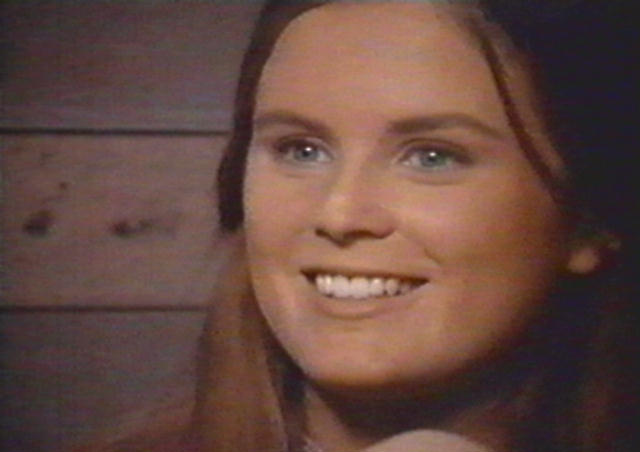
The sea of onlookers couldn't help but part for the whirlwind that now breezed in. She was a bright-eyed girl/woman, on the verge of her majority, and she was plumed in the lastest New York fashions, which she wore with the aplomb that only the young can achieve without seeming self-conscious. She was of medium height and build, but carried herself as though she were statuesque, yet, somehow, her carriage and her dress came across not as conceit but as joy: she was a young modern American woman, and she was glad of it.
She carried under her arm an overstuffed satchel, which she now set on the podium as Griffith, one hand under her elbow, steered her forward for an introduction to the crowd. "Miss Annabelle Considine of New York City."

She paused for a moment, surveying the room with a frank eye and allowing the reporters to make note of her name and description. When she spoke, her voice rang out, filling the room effortlessly. "Good afternoon, ladies and gentlemen. I'm Annabelle Considine, daughter of Decoursey Considine of Kingsburg, Colorado. You may know me as Authentic Annie, feature writer for the New York Times.
"I was supposed to be in Atlanta today, interviewing that amazing lady scientist, Dr. Mae McRae, whose research has brought us to the brink of a cure for polio. But my article will be a day or two late, I'm afraid, because another duty must take precedence: the discharge of great debt and the righting of a terrible wrong.
"Ladies and gentlemen," she drew in a deep breath, "I am about to show you something you've never seen before, something no one has ever seen before." She reached into her satchel and withdrew two large, glossy sheets of paper. After a dramatic pause, she turned the sheets and held them high, one in each hand, so the audience could see the fronts: each bore the image of a man, a rather attractive man, in their early thirties, dressed in prison uniforms. The audience, puzzled, remained quiet in expectation.
Annabelle smiled broadly. "Ladies and gentlemen, Kid Curry and Hannibal Heyes."
Now the crowd burst into noise. She let them fuss for several minutes before pounding the podium for their silence. "Ladies and gentlemen, these are the first photographs of Curry and Heyes." She glanced at Lom, then amended her statement. "That is, the first known photographs. The boys think there may be one other, but no one knows where. Regardless, these are the only current photographs. I will release them to your newspapers tomorrow--after they run in the Times tonight.
"You may be wondering how it is that Curry and Heyes agreed to pose for these photographs. Believe me, it wasn't easy talking them into it. But I believe that soon, every newspaper in the country will carry a photograph of these boys--a photograph of them shaking hands with Governor Francis Warren as he grants them the amnesty they have earned, many times over.
"In tomorrow's Times you will also read the first newspaper interview ever with Heyes and Curry, followed by my account of the time I spent with them, three years ago. But I want you to hear about it now, because it's story of a changed life--not their changed lives, but mine.
"I met Kid Curry--though he told me his name was Thaddeus Jones--on April 20, 1886, when I was riding a train from my home in Watson Creek, Colorado, to Kingsburg. I was seventeen, a farm girl, and I was promised to a farm boy in Watson Creek. But I couldn't bear the thought of marrying--and I still can't!"
Some murmurs arose in the crowd.
"I wanted a life of my own! I wanted to travel, to meet people, to see the Seven Wonders of the World, to experience all the world has to give--and I am doing so! And I am here to tell you, there is so much more to life than most of us will ever dream, and if your soul chafes at the bit, let it loose to run, even if you are a girl, and from a small farm in Colorado!
"I am living a life that not even I, with my tremendous childhood dreams, could imagine. I went out in search of authentic experience, and I have found it everywhere, in every human heart I have come to know. I have known freedom--and I am here to demand that same right, that right to travel and experience life and live one's largest dreams--I am here to demand that right for Kid Curry and Hannibal Heyes,who have more than earned it."
Annabelle stepped back from the podium and waved Lom toward her. "Sheriff," she whispered, "when you see him tonight, please give Thaddeus something from me." She pressed a collection of newspaper clippings into his hand.
He glanced at the headline: "'Authentic Experience.' Intrepid girl reporter travels the world." Annabelle winked at the sheriff. "Tell him it's from his former wife."
Annabelle, with her satchel and photographs, took a seat beside Senor Armanderiz.